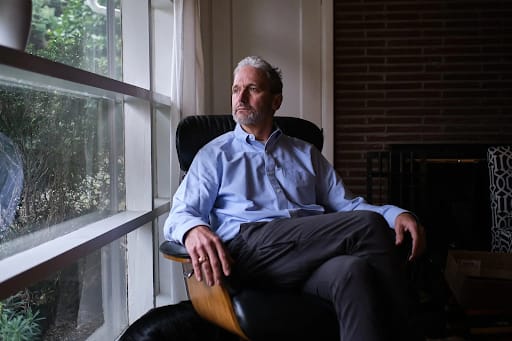
Dr. Gideonse
Compassion & Choices Action Network and advocates across Oregon are praising Governor Tina Kotek for signing bipartisan legislation to solidify a critical improvement to Oregon’s Death With Dignity Act by formally removing its residency requirement. The Oregon Senate passed House Bill 2279 in June by a bipartisan vote of 17 to 8 following the House’s approval of the bill in March by a bipartisan vote of 35 to 21.
The Oregon law has authorized access to aid-in-dying medication for terminally ill, mentally capable adults since 1997, but it has required that patients be Oregon residents. However, last May Oregon officials agreed to a settlement of a federal lawsuit filed by Compassion & Choices on behalf of a Portland physician who treats patients nearby in Washington, Dr. Nicholas Gideonse, claiming that the residency requirement in Oregon’s medical aid-in-dying law violated the U.S. Constitution’s guarantee of equal treatment. Settlement of the case, Gideonse v. Brown, et al., required the Oregon Health Authority (OHA), Oregon Medical Board and the Multnomah County District Attorney to issue directives halting enforcement of the unconstitutional residency provision of the law and initiate a legislative request to permanently remove the residency language from the law.
Introduced by the OHA, HB 2279 was supported by Compassion & Choices Action Network and Death with Dignity National Center.
“Oregon officials’ agreement not to enforce the residency mandate was important, but the 35 county DAs outside of Multnomah County did not sign onto that agreement, so they were not bound by it. That’s why formally removing it from the law provides much more certainty to physicians in the other 35 Oregon counties and their nonresident patients that they can utilize medical aid in dying without fear of any legal risk,” said Dr. Gideonse, who is licensed to practice medicine in Oregon but not in Washington. “I thank Oregon lawmakers for removing this unnecessary barrier so nonresident patients who receive treatment here can get the end-of-life care they deserve.”
“We thank Oregon lawmakers for recognizing that your ZIP code should not dictate whether a terminally ill person can seek medical aid in dying to peacefully end unbearable suffering,” said Kim Callinan, president and CEO of Compassion & Choices Action network and its sister organization, Compassion & Choices. “Americans travel all the time across state lines to receive the best care, so it should be no different for this end-of-life care option. While we know based on Oregon’s latest Health Authority report since the settlement that few terminally ill individuals will have the energy, resources and time to relocate to Oregon to use the law, it still means the world to those who are able to do it to gently end needless suffering.”
In May, Vermont Governor Phil Scott (R) signed legislation to remove the residency requirement in its medical aid-in-dying law following a settlement of a federal lawsuit filed by Compassion & Choices on behalf of a terminally ill Connecticut woman, Lynda Bluestein. Seven other states and Washington, D.C., have medical aid-in-dying laws with residency requirements: California, Colorado, Hawai‘i, Maine, New Jersey, New Mexico and Washington.
The Compassion & Choices Action Network is a national 501(C)4 organization devoted to authorizing and defending state policies that improve care and expand options for the end of life.
Paid for by the Compassion & Choices Action Network.
Mail contributions directly to:
Compassion & Choices Gift Processing Center
PO Box 485
Etna, NH 03750
Compassion & Choices is a 501 C3 organization. Federal tax number: 84-1328829